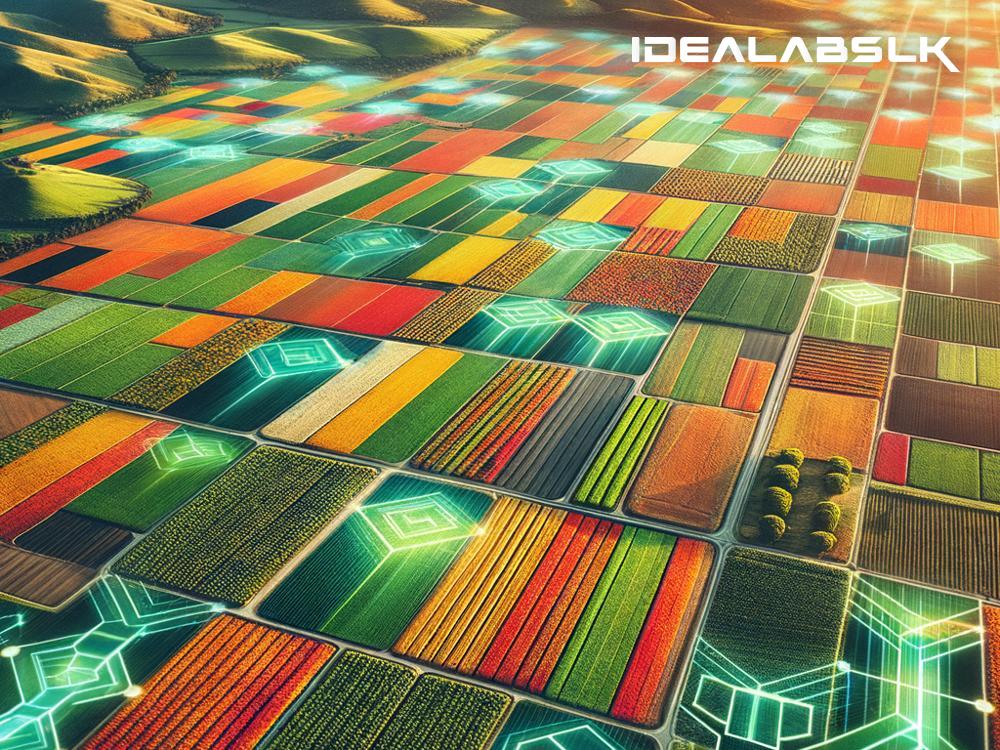Simplifying Blockchain in Land Registration
In an age where technology continually shapes and reshapes our world, an exciting transformation is happening in the ownership and registration of land. A process traditionally bogged down by paperwork, inefficiency, and fraud is being reimagined through the power of blockchain. But what does this really mean? Let's break down the concept of blockchain and understand its revolutionary application in land registration, all while keeping things simple.
The Foundation: What is Blockchain?
Imagine a notebook that multiple people can write in simultaneously. Every time someone adds new information, it's like they're writing a new page. But, before they can add it, everyone has to agree that what’s written is true. Once everyone signs off, the page is glued in permanently; it can't be changed or torn out. This notebook is stored not in one place but is distributed across a network, with everyone holding a copy. This is, in essence, what blockchain is—a shared, immutable ledger that records transactions across a decentralized network.
Blockchain Meets Land Registration
Traditionally, land records have been kept in paper ledgers or digital systems controlled by a single entity, such as a government department. This setup has several drawbacks: papers can be lost, tampered with, or destroyed; digital records can be hacked; not to mention the process is often slow and opaque. Blockchain introduces a system that is decentralized, transparent, and secure. Here’s how it’s reshaping land registration:
Decentralization
With blockchain, the record of land ownership is not stored in one place but across a network of computers. This means that no single party has control over the entire database, making it nearly impossible for the system to be manipulated by fraudsters or corrupted insiders.
Transparency
Every transaction or change in ownership is recorded on the blockchain, and since this ledger is publicly available, anyone can trace the history of a plot of land back to its original acquisition. This transparency ensures fairness and builds trust among parties involved.
Security
Thanks to cryptography, every transaction on the blockchain is securely encoded. Alongside the consensus mechanism—where multiple parties verify a transaction before it's added to the chain—it becomes incredibly difficult for anyone to alter the historical data. If someone tries to change a piece of information dishonestly, it won’t match the copies held by others, and the network will reject it.
Efficiency
Blockchain can significantly speed up land registration processes. Through smart contracts—self-executing contracts with the terms directly written into code—transactions can happen automatically when conditions are met, without the need for manual processing or verification. This means less paperwork, lower costs, and faster transactions.
The Global Picture
Governments and organizations around the world are beginning to explore blockchain for land registration. For instance, countries like Sweden, Georgia, and India are running pilots or have fully integrated systems to manage land records, showing promising results in reducing fraud and improving efficiency.
Real-World Benefits
- Enhanced Security: The risk of fraud and land disputes decreases significantly.
- Increased Transparency: Everyone involved, from landowners to buyers, has access to a transparent system where they can verify information independently.
- Speed and Efficiency: Transactions that used to take months can be completed in days or even minutes.
- Cost Reduction: With decreased need for intermediaries and manual verification, the cost of registration and transfer is reduced.
- Empowerment of Landowners: Landowners have better control and assurance over their property records.
Challenges and Considerations
Despite its advantages, incorporating blockchain into land registration does face some hurdles. Technical challenges, the need for clear legal frameworks, and issues of privacy and data protection are among the top concerns. Additionally, the success of such a system relies on widespread acceptance and trust from the public and institutions alike.
Looking Ahead
As blockchain technology evolves and its adoption becomes more widespread, we stand on the brink of a major shift in how land ownership is recorded and transferred. This innovation not only promises to streamline and secure land registration but also has the potential to empower millions of people by providing clear, indisputable ownership records. It's a journey that's just beginning, and one that could reshape our relationship with the land under our feet.
In simple terms, blockchain in land registration is about making the ownership and transfer of property simpler, safer, and more transparent for everyone involved. It's a powerful example of how technology can be used to improve fundamental aspects of our lives and governance, paving the way for a future where transactions of all kinds are fairer, faster, and fraud-free.

